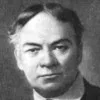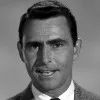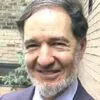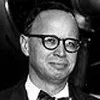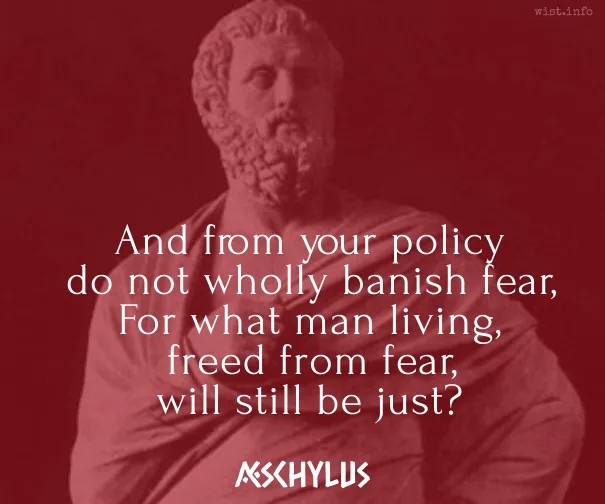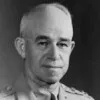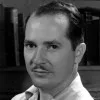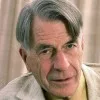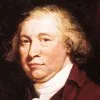The true rule, in determining to embrace, or reject any thing, is not whether it have any evil in it; but whether it have more of evil, than of good. There are few things wholly evil, or wholly good. Almost every thing, especially of governmental policy, is an inseparable compound of the two; so that our best judgment of the preponderance between them is continually demanded.
Abraham Lincoln (1809-1865) American lawyer, politician, US President (1861-65)
Speech (1848-06-20), On Internal Improvements, US House of Representatives
(Source)
Quotations about:
policy
Note not all quotations have been tagged, so Search may find additional quotes on this topic.
It may be that we have become so feckless as a people that we no longer care how things do work, but only what kind of quick, easy outer impression they give. If so, there is little hope for our cities or probably for much else in our society. But I do not think this is so.
Jane Jacobs (1916-2006) American-Canadian journalist, author, urban theorist, activist
The Death and Life of Great American Cities, Introduction (1961)
(Source)
Yes, it is always the best policy to speak the truth — unless, of course, you are an exceptionally good liar.
Jerome K. Jerome (1859-1927) English writer, humorist [Jerome Klapka Jerome]
Idler Magazine, “The Idler’s Club” column (1892-02)
(Source)
This is the richest and most powerful country which ever occupied the globe. The might of past empires is little compared to ours. But I do not want to be the President who built empires, or sought grandeur, or extended dominion.
I want to be the President who educated young children to the wonders of their world.
I want to be the President who helped to feed the hungry and to prepare them to be taxpayers instead of tax-eaters.
I want to be the President who helped the poor to find their own way and who protected the right of every citizen to vote in every election.
I want to be the President who helped to end hatred among his fellow men and who promoted love among the people of all races and all regions and all parties.
I want to be the President who helped to end war among the brothers of this earth.Lyndon B. Johnson (1908-1973) American politician, educator, US President (1963-69)
Speech (1965-03-15), “The American Promise,” Joint Session of Congress [43:30]
(Source)
Ruling is hard. This was maybe my answer to Tolkien, whom, as much as I admire him, I do quibble with. Lord of the Rings had a very medieval philosophy: that if the king was a good man, the land would prosper. We look at real history and it’s not that simple. Tolkien can say that Aragorn became king and reigned for a hundred years, and he was wise and good. But Tolkien doesn’t ask the question: What was Aragorn’s tax policy? Did he maintain a standing army? What did he do in times of flood and famine? And what about all these orcs? By the end of the war, Sauron is gone but all of the orcs aren’t gone — they’re in the mountains. Did Aragorn pursue a policy of systematic genocide and kill them? Even the little baby orcs, in their little orc cradles?
George R. R. Martin (b. 1948) American author and screenwriter [George Raymond Richard Martin]
Interview (2014-04-23) by Mikal Gilmore, “The Rolling Stone Interview,” Rolling Stone
(Source)
It’s simply a national acknowledgement that in any kind of priority, the needs of human beings must come first. Poverty is here and now. Hunger is here and now. Racial tension is here and now. Pollution is here and now. These are the things that scream for a response. And if we don’t listen to that scream — and if we don’t respond to it — we may well wind up sitting amidst our own rubble, looking for the truck that hit us — or the bomb that pulverized us. Get the license number of whatever it was that destroyed the dream. And I think we will find that the vehicle was registered in our own name.
Rod Serling (1924-1975) American screenwriter, playwright, television producer, narrator
Commencement Address, University of Southern California (17 Mar 1970)
(Source)
In Anne Serling, As I Knew Him: My Dad, Rod Serling, ch. 28 (2013).
I learned that speed and simplicity in large affairs are most essential; that severity in preserving an idea is vital; that in a democracy, the public must be informed; and that good will without competence and competence without good will, are both equivalent formulas for political disaster.
Theodore H. White (1915-1986) American political journalist, historian, author
In Search of History: A Personal Adventure, Part 3, ch. 7 (1978)
(Source)
On the factors for the success of the Marshall Plan in Europe.
Businesses have changed when the public came to expect and require different behavior, to reward businesses for behavior that the public wanted, and to make things difficult for businesses practising behaviors that the public didn’t want. I predict that in the future, just as in the past, changes in public attitudes will be essential for changes in businesses’ environmental practices.
Jared Diamond (b. 1937) American geographer, historian, ornithologist, author
Collapse: How Societies Choose to Fail or Succeed, “Big businesses and the environment” (2005)
(Source)
The ideal capitalism envisioned by advocates of the free market depends upon social virtues and wise policies that it does not itself generate.
Timothy Snyder (b. 1969) American historian, author
Black Earth: The Holocaust as History and Warning, “Conclusion: Our World” (2015)
(Source)
Such closet politicians never fail to assign the deepest motives for the most trifling actions; instead of often ascribing the greatest actions to the most trifling causes, in which they would be much seldomer mistaken. They read and write of kings, heroes, and statesmen, as never doing any thing but upon the deepest principles of sound policy. But those who see and observe kings, heroes and statesmen, discover that they have headaches, indigestions, humours, and passions, just like other people; every one of which, in their turns, determine their wills, in defiance of their reason.
Lord Chesterfield (1694-1773) English statesman, wit [Philip Dormer Stanhope]
Letter to his son, #205 (5 Dec 1749)
(Source)
The worst error a president can make is to assume the automatic implementation of his own decisions. In certain respects, having able subordinates aggravates that problem, since strong personalities tend to have strong ideas of their own. Civil government operates by consent, not by command; the President’s task, even within his own branch of government, is not to order but to lead.
Arthur M. Schlesinger, Jr. (1917-2007) American historian, author, social critic
The Age of Roosevelt: The Coming of the New Deal, ch. 33, sec. 3 (1959)
(Source)
Policies are judged by their consequences but crusades are judged by how good they make the crusaders feel.
Thomas Sowell (b. 1930) American economist and political commentator
Compassion vs. Guilt, and Other Essays (1987)
(Source)
BETTY OLDHAM: Look, Sir Humphrey, whatever we ask the Minister, he says is an administrative question for you, and whatever we ask you, you say is a policy question for the Minister. How do you suggest we find out what is going on?
SIR HUMPHREY: Yes, yes, yes, I do see that there is a real dilemma here. In that, while it has been government policy to regard policy as a responsibility of Ministers and administration as a responsibility of Officials, the questions of administrative policy can cause confusion between the policy of administration and the administration of policy, especially when responsibility for the administration of the policy of administration conflicts, or overlaps with, responsibility for the policy of the administration of policy.
BETTY OLDHAM: Well, that’s a load of meaningless drivel. Isn’t it?
SIR HUMPHREY: It’s not for me to comment on government policy. You must ask the Minister.
We ought to consider what is the end of government before we determine which is the best form. Upon this point all speculative politicians will agree that the happiness of society is the end of government, as all divines and moral philosophers will agree that the happiness of the individual is the end of man. From this principle it will follow that the form of government which communicates ease, comfort, security, or, in one word, happiness, to the greatest number of persons, and in the greatest degree, is the best.
John Adams (1735-1826) American lawyer, Founding Father, statesman, US President (1797-1801)
“Thoughts on Government,” letter to George Wythe (Jan 1776)
(Source)
To live bravely by convictions from which the free peoples of the world can take heart, the American people must put their faith in long-range policies — political, economic, and military — programs that will not be heated and cooled with the brightening and waning of tensions. The United States has matured to world leadership; it is time we steered by the stars, not by the lights of each passing ship.
War is not violence and killing, pure and simple; war is controlled violence, for a purpose. The purpose of war is to support your government’s decisions by force. The purpose is never to kill the enemy just to be killing him — but to make him do what you want him to do. Not killing — but controlled and purposeful violence.
Despite considerable propaganda to the contrary, the greatest need of the moment is not a decision to be tender to the well-to-do. Their situation is not so desperate as popularly represented. Also one makes an economy work not by rewarding the rich but by rewarding all who contribute to its success.
John Kenneth Galbraith (1908-2006) Canadian-American economist, diplomat, author
Speech (1963-12-13), “Wealth and Poverty,” National Policy Committee on Pockets of Poverty
(Source)
Whenever a single definite object is made the supreme end of the State, be it the advantage of a class, the safety of the power of the country, the greatest happiness of the greatest number, or the support of any speculative idea, the State becomes for the time inevitably absolute. Liberty alone demands for its realisation the limitation of the public authority, for liberty is the only object which benefits all alike, and provokes no sincere opposition.
John Dalberg, Lord Acton (1834-1902) British historian, politician, writer
“Nationality,” Home and Foreign Review (1862-07)
(Source)
If there is distrust out there — and there is — perhaps it is because there is so much partisan jockeying for advantage at the expense of public policy. At times it feels as if American politics consists largely of candidates without ideas, hiring consultants without convictions, to stage campaigns without content. Increasingly the result is elections without voters.
Gerald R. Ford (1913-2006) American politician, US President (1974-77) [b. Leslie Lynch King, Jr.]
Speech, Profiles in Courage Award Acceptance, John F. Kennedy Presidential Library (2001)
(Source)
But now Nixon has come along and everything I’ve worked for is ruined. There’s a story in the paper every day about him slashing another one of my Great Society programs. I can just see him waking up in the morning, making that victory sign of his and deciding which program to kill. It’s a terrible thing for me to sit by and watch someone else starve my Great Society to death. She’s getting thinner and thinner and uglier and uglier all the time; now her bones are beginning to stick out and her wrinkles are beginning to show. Soon she’ll be so ugly that the American people will refuse to look at her; they’ll stick her in a closet to hide her away and there she’ll die. And when she dies, I, too, will die.
Lyndon B. Johnson (1908-1973) American politician, educator, US President (1963-69)
Comment (1971) to Doris Kearns Goodwin
(Source)
Quoted in Doris Kearns Goodwin, Lyndon Johnson and the American Dream, ch. 10 "Things Go Wrong" (1976). Kearns was an intern and staff member in the Johnson White House, and worked with him on his memoirs.
This administration today, here and now, declares unconditional war on poverty in America.
Lyndon B. Johnson (1908-1973) American politician, educator, US President (1963-69)
Speech (1964-01-08), “State of the Union,” Joint Session of Congress, Washington, D. C.
(Source)
Mr. David Stockman has said that supply-side economics was merely a cover for the trickle-down approach to economic policy — what an older and less elegant generation called the horse-and-sparrow theory: If you feed the horse enough oats, some will pass through to the road for the sparrows.
John Kenneth Galbraith (1908-2006) Canadian-American economist, diplomat, author
“Recession Economics,” New York Review of Books (1982-02-04)
(Source)
Just as our national policy in internal affairs has been based upon a decent respect for the rights and the dignity of all our fellow men within our gates, so our national policy in foreign affairs has been based on a decent respect for the rights and dignity of all nations, large and small. And the justice of morality must and will win in the end.
Franklin Delano Roosevelt (1882-1945) American lawyer, politician, statesman, US President (1933-1945)
Speech (1941-01-06), “State of the Union [Four Freedoms],” Washington, D. C.
(Source)
War is not merely a political act but a real political instrument, a continuation of political intercourse, a carrying out of the same by other means.
[Der Krieg nicht bloss ein politischer Akt, sondern ein wahres politisches Instrument ist, eine Fortsetzung des politischen Verkhers, ein Durchführen desselben mit andern Mitteln.]
Karl von Clausewitz (1780-1831) Prussian soldier, historian, military theorist
On War [Vom Kriege], Book 1, ch. 1 “What is War? [Was ist der Krieg?],” § 24 (1.1.24) (1832) [tr. Jolles (1943)]
(Source)
(Source (German)). Alternate translations:War is not merely a political act, but also a real political instrument, a continuation of political commerce, a carrying out of the same by other means.
[tr. Graham (1874)]War is not merely an act of policy but a true political instrument, a continuation of political intercourse, carried on with other means.
[tr. Howard & Paret (1976)]
There is often confusion between this full sentence and the shorter section heading, which is also quoted:War is a mere continuation of policy by other means.
[tr. Graham (1874) and Jolles (1943)]War is merely the continuation of policy by other means.
[tr. Howard & Paret (1976)]Der Krieg ist eine blosse Fortsetzung der Politik mit andern Mitteln.
[German source]
Justice is itself the great standing policy of civil society; and any eminent departure from it, under any circumstances, lies under the suspicion of being no policy at all.
Edmund Burke (1729-1797) Anglo-Irish statesman, orator, philosopher
“Reflections on the Revolution in France” (1790)
(Source)
We have always known that heedless self-interest was bad morals; we know now that it is bad economics.
Franklin Delano Roosevelt (1882-1945) American lawyer, politician, statesman, US President (1933-1945)
Inaugural Address (20 Jan 1937)
(Source)
The true rule, in determining to embrace, or reject any thing, is not whether it have any evil in it; but whether it have more of evil, than of good. There are few things wholly evil, or wholly good. Almost every thing, especially of governmental policy, is an inseparable compound of the two; so that our best judgment of the preponderance between them is continually demanded.
Abraham Lincoln (1809-1865) American lawyer, politician, US President (1861-65)
Remarks, House of Representatives (1848-06-20)
(Source)
Speaking on internal improvements (infrastructure) as part of governmental policy.
FIRST STRANGER: Men must learn now with pity to dispense,
For policy sits above conscience.William Shakespeare (1564-1616) English dramatist and poet
Timon of Athens, Act 3, sc. 2, l. 93ff (3.2.93-94) (1606) [with Thomas Middleton]
(Source)
The country needs and, unless I mistake its temper, the country demands bold, persistent experimentation It is common sense to take a method and try it: If it fails, admit it frankly and try another. But above all, try something. The millions who are in want will not stand by silently forever while the things to satisfy their needs are within easy reach.
Franklin Delano Roosevelt (1882-1945) American lawyer, politician, statesman, US President (1933-1945)
Commencement Speech, Oglethorpe U. (22 May 1932)
(Source)
To those peoples in the huts and villages of half the globe struggling to break the bonds of mass misery, we pledge our best efforts to help them help themselves, for whatever period is required — not because the communists may be doing it, not because we seek their votes, but because it is right. If a free society cannot help the many who are poor, it cannot save the few who are rich.
What is wanted is men, not of policy, but of probity, — who recognize a higher law than the Constitution, or the decision of the majority. The fate of the country does not depend on how you vote at the polls, — the worst man is as strong as the best at that game; it does not depend on what kind of paper you drop into the ballot-box once a year, but on what kind of man you drop from your chamber into the street every morning.
Henry David Thoreau (1817-1862) American philosopher and writer
Speech (1854-07-04), “Slavery in Massachusetts,” Anti-Slavery Celebration, Framingham, Massachusetts
(Source)
After the conviction in Boston of Anthony Burns, under the Fugitive Slave Act of 1850. This led to large protests and an abolitionist riot at the Boston Courthouse, requiring Federal troops and state militia to ensure his transport to a ship sailing to Virginia.



